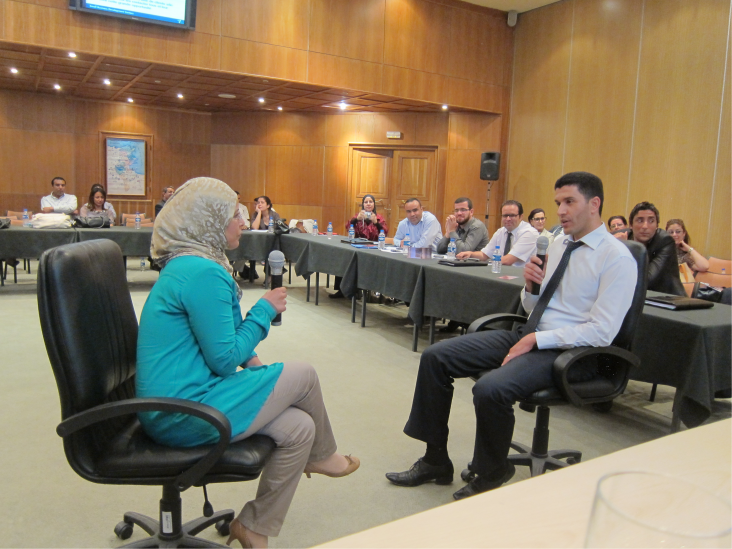
In the country where the Arab Awakening began in 2010, a new generation of Tunisian business leaders, with help from American partners, is building the critical skills to again lead the region. But this time, the focus is on economic development, job creation and small business formation.
On June 28, 2013, 63 Tunisians—many of them women and young adults—received their certificates of graduation in counselor and director training from the USAID-funded Small Business Development Center (SBDC) program.
Developed and taught by the University of Texas-San Antonio (UTSA), the program builds on over 30 years of experience with the SBDC model in the United States and abroad. The training, which began in May 2013, laid the foundation to establish four pilot SBDCs, projected to open in early 2014, that will support the country’s many entrepreneurs and small business owners. The ongoing USAID program is co-managed by the university and the International Executive Service Corps.
“Thanks to UTSA’s training, we now have a concise SBDC model to apply to our own Small Business Development Centers. Using this model, the personal connections fostered during the sessions are providing the backbone for the establishment of an effective and integrated network of Tunisian SBDCs,” said Ikhlas Haddar, minister of commerce and artisans.
To continue the momentum of the program after the American partners are scheduled to leave in 2014, the Tunisian centers will later be connected to the SBDC network through the online trade platform SBDCGlobal.com, where Tunisian small business clients will be able to find international trade opportunities.
“The work we are doing here will maximize economic impact and promote growth and trade opportunities, particularly among young entrepreneurs and small businesses," said Cliff Paredes, director of UTSA’s International Trade Center.
Tunisia, like many countries in the Middle East, must contend with the parallel economic growth challenges of a high population growth rate and high unemployment, particularly among women and young men. USAID programs support economic progress that can help bolster democratic reforms both in Tunisia and elsewhere in the region. The Agency's Tunisian programs continue to focus on private sector investment and growth, employment, policy and business reform, and the link between education and the job market.







Comment
Make a general inquiry or suggest an improvement.